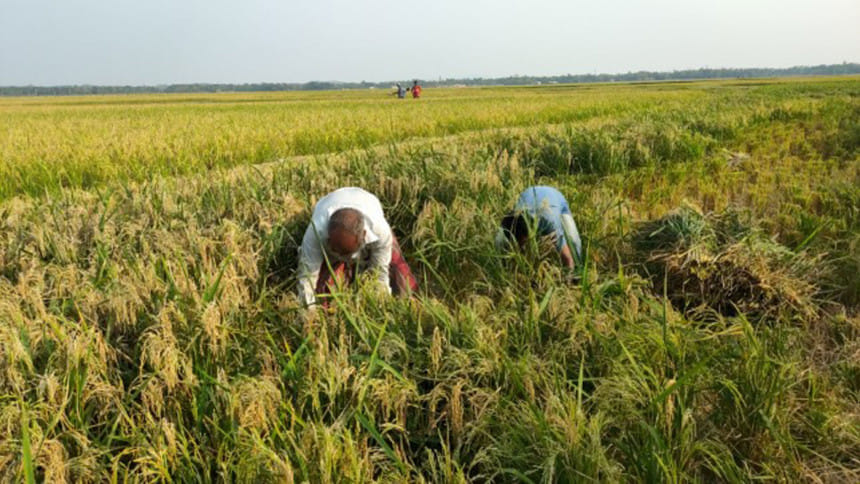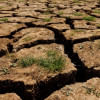We must build food system resilience before the next crisis

In February 2022, news of Russia's invasion of Ukraine dominated headlines around the world.
Policymakers everywhere worried about the potential ripple effects of the invasion on the economic recovery from COVID-19, as well as on political stability — and food and nutrition security. These worries proved to be well-founded: International food prices spiked by nearly a third and fertilizer prices tripled.
The conflict erupted at a time of already high uncertainty for food systems. Well before missiles were aimed at Kyiv, many countries, particularly in Africa and the Middle East, were already contending with food crises and high prices.
Farmers in South America and Malaysia were struggling with poor harvests, COVID-19 was scrambling supply chain logistics, and consumers, especially in China, were emerging from lockdowns and driving up demand. Gender equality also faced a global decline.
Poverty on the rise
The war aggravated these problems and pushed more people into poverty around the world. According to simulations conducted by researchers at the International Food Policy Research Institute, recent global price shocks may have caused national poverty headcount rates to rise by as much as 7.7 percentage points and undernourishment by up to 4.4 percentage points.
Although international food and fertilizer prices have fallen since those initial spikes, the global food crisis continues, and the outlook for 2023 is precarious.
Food prices remain high by historical standards. Wheat stocks are at their lowest levels since the 2007/08 food crisis, and stocks of maize and soybeans are at their lowest since 2012/13. Meanwhile, low stock-to-use ratios raise the risk of more price spikes should some new shock occur.
The current array of global challenges, including war, pandemic, climate change-driven impacts such as droughts and extreme weather, mass migration, and political instability, point to crisis being the new normal for food systems.
Even before the pandemic unfolded in early 2020, global development progress had begun to stagnate and then reverse, ending previous decades' strides in cutting hunger and poverty. As a result of these compounding crises, the number of people globally experiencing crisis-level acute food insecurity or worse has doubled since 2016, with as many as 205 million people in 45 countries affected in 2022.
Effective solutions
Fortunately, many effective policies, interventions, and tools are available to address this "new normal" barrage of shocks. In our opening chapter to IFPRI's 2023 Global Food Policy Report, we lay out the evidence behind a set of the most useful approaches. These include:
• Improving early warning and early action systems.
• Building responsive and flexible social protection interventions.
• Empowering women amid crisis.
• Investing in infrastructure and policies that address the root causes of migration and support forced migrants.
We also explore how to best fund the scaling up of these approaches, with the recognition that anticipatory action frameworks, which help prepare and organise aid before a crisis strikes, are oftentimes far more cost-effective than rushing to mitigate the impacts of a major crisis after it hits. Such recognition is important, especially to low- and middle-income countries facing inflation and rising public sector debt.
Long-term change
Crises rarely arise from isolated shocks. Rather, long-term sources of fragility often intensify the adverse effects, resulting in a full-blown crisis. Poverty, poor governance, climate change, gender and social inequalities, and lack of social cohesion all influence the breadth and impact of shocks. These factors can act as multipliers, further increasing food insecurity.
The approaches the report highlights to address crises represent an important shift in thinking: From responding solely with humanitarian assistance to those affected to using crisis response to also strengthen and increase the resilience of food systems, promote effective governance and accountability, and empower the most vulnerable populations.
Examples of food system resilience in the face of crisis can be found in many places. This year's report points to the surprising resilience of agrifood value chains during the past few years and explores their potential in the current landscape of risk and uncertainty.
Value chains have expanded and diversified, improving the ability to meet food and nutritional needs. Enabling regulatory and business environments can foster value-chain innovations and create new livelihood opportunities for huge swaths of the population in low- and middle-income countries — reducing the fallout from various kinds of shocks.
Diversify and scale-up
The diversity of approaches needed to build resilience requires expanded research to ensure that all development efforts are backed by the highest quality evidence.
Research institutes such as IFPRI are modeling the impacts of the food crisis at the global and regional levels, and also by country, helping policymakers to understand trade-offs and make critical decisions on where and how to invest limited resources. But more is needed. For example, improved collection of gender-disaggregated data can help ensure that humanitarian responses improve rather than erode gender equality and real-time monitoring can vastly improve the effectiveness of early warning systems.
Crisis is not just a news headline that appears one day and is gone the next: It is a grim ongoing reality for the world's most marginalised people, including forced migrants, women, and the 1.5 billion people who currently live in fragile and conflict-affected settings, and thus experience shocks more severely.
The time is now for governments, donors, the development community, and the private sector to operationalise and scale up evidence-based approaches to holistically address crises before they occur and build up the resilience of food systems for generations to come.
Katrina Kosec is a senior research fellow at the IFPRI. Johan Swinnen is the director-general of the IFPRI. This post was first published on Devex.com

 For all latest news, follow The Daily Star's Google News channel.
For all latest news, follow The Daily Star's Google News channel. 








Comments